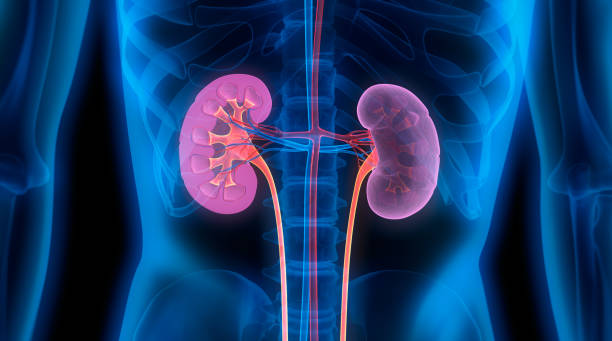When the terrible news comes from your doctor that you have been diagnosed with potential kidney disease – it is important to remain resilient.
Not all prognosis will be bad, as the type of kidney disease and its level of progression will determine what you should do next to addrsss and manage it for the best outcome. The abslute first step is to speak with a Nephrologist in your area to determine the severity and level of your condition, and what steps you should start taking to best manage the contition.
Some patients suffer from Accute Kidney diesease due to some event of underlying condition that can be adressed and they can improve over time. This is accomplished by following the advice of your nephrologist, addressing teh causes and some lifestyle changes. Ideally you speak with a specialized nutritionis who can help you navigate dietary changes necessary for the best outcomes.
Others may suffer from chronic kidney disease, which often comes with the prognosis of managing the condition and reducing the worsening of it. This usally involves immediate and significant lifestyle changes usually centered around dietary changes and behavioral changes. While this is not ideal to have a chronic condition, being informed will help you manage it as best as possible.
When diagnosed with kidney disease, you will be given a renal panel blood test, which will determine the levels of different compounds in your blood. An estimated globular filtration rate is often a main number used in determining the stage you may be suffering from. Additoinal numnbers given often include your cratinine level, your BUN as these together help paint a picture for your diagnosis.
Additionally they can perform a sonogram of your kidneys- looking for masses, stones and overall condition, and in some cases take a biopsy to test the actual tissue for the most accurate diagnosis. These are usually reserved for those determined via blood test to be at more advanced stages of kindey disease, or kidney failure.
Once your diagnosis have been made, it’s time to take action on next steps for the best outcome.
- If you drink or smoke you should cease and desist immediately. Clinical studies have shown that smoking wether cigarettes, cigars, Marijuana or other illicit drugs can cause kidney damage.
- If you also suffer from high blood pressure, you need to address it immediately. Blood pressure medicine will likely be prescribed and can significantly improve youe overall life quality. Its important for your kidneys, but also due to other co-morbidities that can arrise if left un-checed.
- Dietary changes can help improve how you feel and your bloodwork labs. Usually your Nephrologist or specialized Nutritionist will recommend that oyu immediately remove certain foods from your diet, and introduce new ones. When your kidneys do not properly filter toxins from your body, they can build up and cause worseing symptoms and further advance the disease. Typically they will reduce the following from your diet:
- Potassium
- Phosphorus
- Protein
- Sodium
- Physical activities – often your Nephrologis will recommend that you modify your physical activities as a result of your symptoms and lab results. This is to reduce how your chices can lead to further injury od progession of the disease.
- Register for kidney transplant at one or more facility or group of your choice. Your Nephrologist will help you with this process usually involving hospitals that perform the surgery, or transplant facilities. We advise you to do your research on these providers and Insurance Coverage, so you can make the best choices. Registering at multiple facilities may decrease your wait time, as could locating a live donor, which often could be a family member or friend. Even if the live donor
Once you make the approipriete changes to the above your quality of life may improve. Failure to do anything will definitely not help.
Note that it is not the end of life when you recieve your diagnosis. Many kidney disease patients live a long and productive life after diagnosis. Our blog has entries covering success stories from actiual patients which can help inspire your recovery. Not everyone’s experience is the same – some patients recover completely, while others go on to receive a new kidney and live for decades. Some people in stage 5 are in wheelchairs and on oxygen with a difficult time aghead and otehrs remain fully active and productive with lifestyle changes and proper treatment. Do not be discouraged by longevity averages as each case is unique and you can defy the odds with the right approach and attitude. The best thing you can do is keep a positive attitude and follow your teatment plan and dietary restrictions thoroughly.


Leave a Reply
You must be logged in to post a comment.